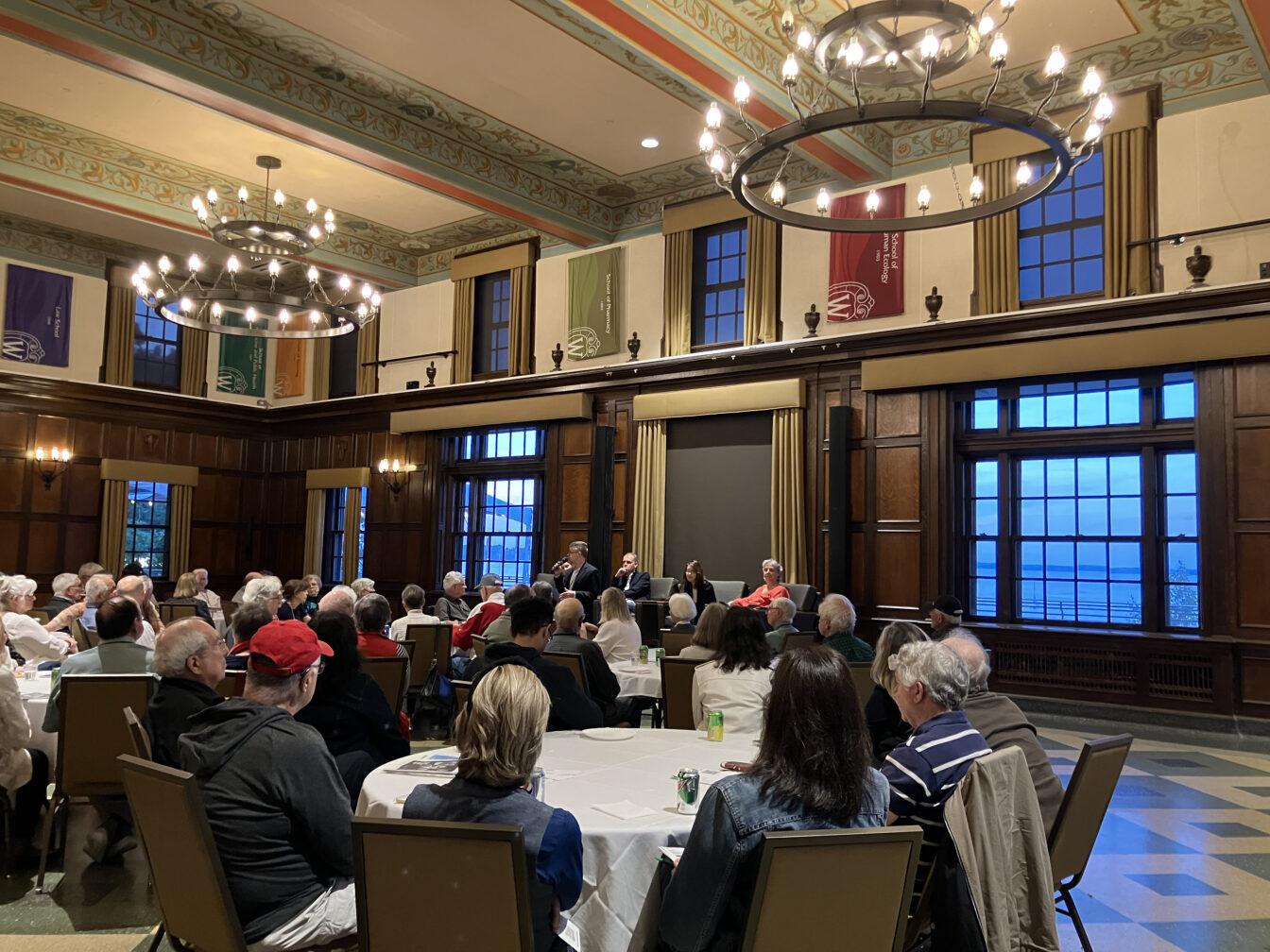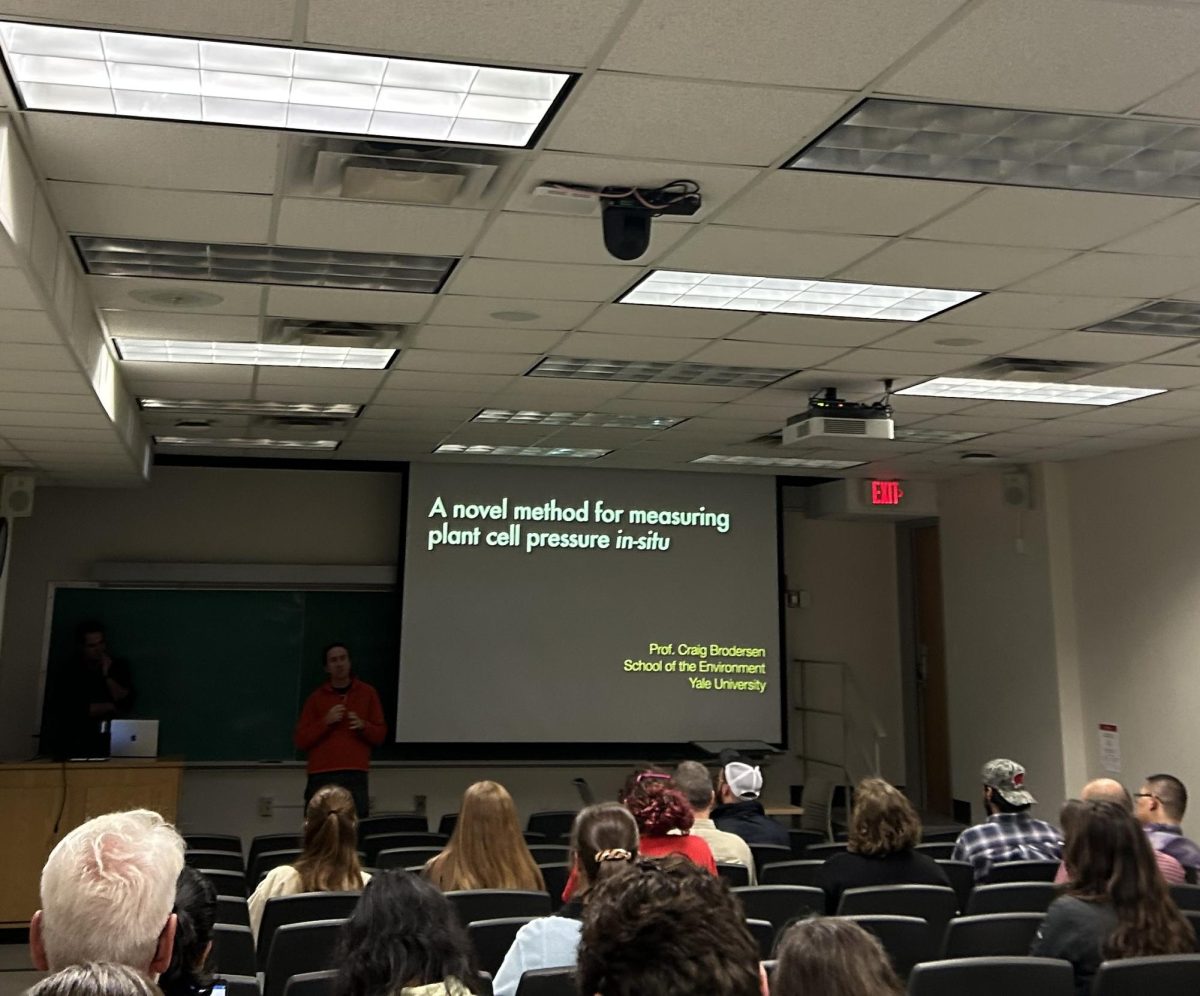Taylor-Bascom Chair in Science Communication at the University of Wisconsin Dietram Scheufele, assistant professor in computational communication Kaiping Chen and James E. Burgess Chair in Journalism Ethics Kathleen Culver paneled the Cap Times’ Idea Fest discussion titled “Journalism in the Age of AI: Who tells us what’s real?” on Monday in Memorial Union.
The panelists discussed engaging the public with efforts to regulate artificial intelligence, the biases built into AI algorithms and the role of journalists and public alike in combating AI disinformation campaigns.
UW’s research nuclear reactor allows for hands-on learning experience for engineering students
Scheufele opened with the attempts by AI firms like Microsoft, Google, Meta and Amazon to lobby Congress to regulate AI. Chen said, like most other deals between the government and firms, there is no public input on the process. She said selecting and consulting European Union-style “public juries” for changes once agreements between the government and tech companies were reached is one suggestion.
All participants spoke on the “black box” of AI, criticizing how companies managed and created their algorithms.
Chen said the language of AI could further fuel partisan divides. When engaged by a climate skeptic, ChatGPT transformed the discussion into rhetoric about political differences instead of maintaining a factual approach, according to a study she worked on.
“[AI] is strengthening these tones and rhetoric when talking to people about these types of issues,” Chen said. “And this goes back to where it is trained and how it comes to reinforce these types of implicit biases.”
Center for Integrated Agricultural Systems partners with Indigenous communities, supports local Indigenous food sovereignty
Culver said in one personal experience she had with Spotify’s generative AI, it went over an hour without playing a female artist. Generative AIs base their predictions on past information, and the biases held within that information manifest it in an even more tangible way.
The panel finished the conversation on the role of journalists and the public in dealing with the current information landscape. Scheufele said there is not much that can be done legally to fight state disinformation campaigns. This is because of the legal gray areas of enforcing laws and the rapid decentralization of information.
Because of the inability to effectively regulate disinformation on social media platforms and information spreading faster than journalists can assess it, Chen said education should adapt to the information ecosystem and instruct children on how to avoid being tricked and letting emotions take over.
Renewable energy affects marginalized towns in Morocco
Culver said there’s a need for human journalists to work with critical issues instead of relying on generative AIs to give us the news. She said the hearings held by the House Oversight Committee on the “weaponization of the federal government” are an attempt to justify cutting funding for researchers examining disinformation campaigns targeting elections.
“They are actually trying to intimidate and shut down academic research on these issues, including academic research happening on this very campus,” Culver said “It is so concerning that we are spending government time and money trying to intimidate these people.”














